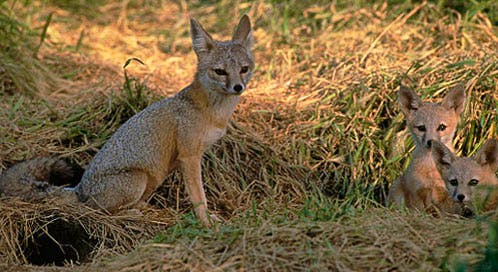It is finally time to start saying goodbye to d-CON, a highly toxic rat poison, and that farewell can’t come soon enough for imperiled wildlife. A recent agreement between the Environmental Protection Agency (EPA) and the pesticide’s manufacturer, Reckitt-Benckiser, ensures that d-CON will finally be taken off the shelves. The agreement also brings to an end a long-running effort to force the company to do the right thing and stop selling the product – an effort that Defenders of Wildlife has been a part of for some time.

Owls like this one could become sick or die after eating rodents that had been poisoned by d-CON
The battle over rodenticides goes back to 1998 when the EPA initially proposed steps to protect children, wildlife, and pets from accidental ingestion of rat poisons. But in 2001, in the face of industry opposition, EPA withdrew the requirements. In 2008, the EPA moved forward with regulations, urging rat poison manufacturers to shelve some of their products voluntarily due to unreasonable risks to children, wildlife, and pets, but Reckitt-Benckiser refused to implement the new protections. EPA then issued another order in 2013 cancelling the products’ registration – a move that prohibits the sale of these super-toxic rat poisons without tamper-resistant packaging. Reckitt-Benckiser demanded an administrative hearing to challenge this common-sense precaution. At this point, it was clear the industry was determined to bully the EPA into allowing them to continue the sale of these dangerous substances, which posed a threat not only to children and pets, but to native wildlife as well. In April 2013, Defenders and our allies joined the fight against these substances to support the EPA’s case and provide our expertise on the impact to wildlife.
Meanwhile, the State of California recently took its own action against d-CON products, banning retail sale of that and other anti-coagulant rodenticides in the state starting in July. Not surprisingly, Reckitt-Benckiser also challenged these rules in state court and Defenders again intervened to prevent the company from overturning these new protections.

Even endangered San Joaquin kit foxes felt the impact of d-CON.
The state’s new restrictions sought to protect wildlife, pets, and children from accidental poisonings, which have been documented in at least 25 species of wild animals in California, including mountain lions, hawks, endangered San Joaquin kit foxes, and northern spotted owls, as well as numerous cats and dogs. According to data from the EPA, each year up to 10,000 children are accidentally exposed to rat poisons in their homes. Anticoagulant rodenticides, such as d-CON, interfere with blood clotting, resulting in uncontrollable bleeding, leading to death, and second-generation anticoagulants are especially hazardous. Rats and mice often eat these slow-acting poisons over several days, causing the toxins to accumulate at many times the lethal dose in their tissues, which in turn poisons predators, the innocent victims, when they prey on the weakened rodents. The California Department of Fish and Wildlife tested nearly 500 wild animals between 1995 and 2011, and their study found second-generation anticoagulants in more than 70 percent of wildlife tested, including eagles, hawks, owls, foxes, bobcats, and mountain lions.
After all this fighting, it’s great news that EPA and Reckitt-Benckiser have finally reached an agreement to limit these super-toxic poisons nationwide. As with any significant stride, it won’t happen overnight – the company agreed to stop producing the super-toxic rat poisons by the end of 2014, and to replace them with safer products by March 2015. Shortly after the announcement, Reckitt-Benckiser also dismissed their challenge to the California regulations.
At the end of the day, elimination of these products is a huge win for wildlife, people and pets. Defenders and our conservation allies will continue to watchdog the issue to hold Reckitt-Benckiser accountable and make sure the company follows through with its agreement.
Anne Russell Gregory is the Conservation Law Coordinator for Defenders of Wildlife



